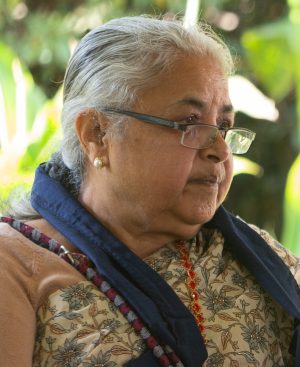The Sushila Karki-led interim government, formed on the back of the Gen Z revolution in Nepal, comes as a breath of fresh Himalayan air. For the first time in a decade, the drama of the same three people taking turns in the prime minister seat, as if the state apparatus were their plaything, has come to an end.
But it won’t be easy to hold elections in the next six months, which is the sole mandate of the new government.
There are some things working for Karki. She has the mandate of the Gen Z revolution. Luckily, after two days of bloodshed, a consensus quickly emerged on the formation of a new government by staying within the bounds of the current Constitution — thus helping prevent another period of prolonged instability.
This was also in keeping with the demands of the political parties represented in Parliament — mainly the Big Three: the Nepali Congress, the Communist Party of Nepal-United Marxist Leninist (CPN-UML) and the CPN (Maoist Centre). Yet their other big demand was ignored. They wanted to keep Parliament intact. President Ramchandra Paudel dissolved Parliament in line with the demands of Gen Z leaders.
It will be up to Karki to take these parties into confidence. Trying to bypass them in the run-up to elections would backfire. The old parties are now on the back foot, with their leaders literally running for their lives. But they have robust nationwide organizations and hundreds of thousands of active members.
Then there is the question of the Big Three sorting out their internal mess. People want NC leader Sher Bahadur Deuba, the CPN-UML chief KP Sharma Oli, and the CPN-MC leader Pushpa Kamal Dahal to retire from politics. Yet, in the aftermath of the revolution, all three are still the heads of their respective parties. It will be a herculean task for the three parties to pick new leaders soon — which they must if they want to compete in the upcoming elections.
Even the Rastriya Swatantra Party, the fourth largest in the outgoing Parliament, will be unsure of its electoral prospects with Rabi Lamichhane, its embattled leader, behind bars.
Then there are the royalists to placate. Even though some leaders of the Gen Z movement were supposedly in favor of restoring the monarchy, their voices were sidelined. They, too, could create troubles in the days ahead. So could other parties and constituencies who want to bide their time. It will be in their interest to delay elections in order to stall the momentum of the forces associated with the Gen Z movement.
The Gen Z leadership, too, is not a monolith. Already, cracks are beginning to appear over the ownership of the movement. It was also telling that perhaps the most recognizable leader of the Gen Z group was asking for the resignation of the prime minister the very next day that she was sworn in! (The call was swiftly withdrawn.)
Besides the lack of preparation of these political parties and groups, security is perhaps an even bigger concern. Recently, the police have failed to manage even small demonstrations — their repeated failure resulting in deaths and destruction. To make things worse, many of their law enforcement equipment was destroyed in the Gen Z protests.
Can the same police force be relied upon to provide security for the polls? The political parties also suspect the intent of the Nepali Army, after it failed to intervene in the Gen Z protests and to protect even the central secretariat and the President’s House. Some suspect the army was content to let the civilian leaders fall.
The security situation could get worse. Over the next few weeks and months, the government will be under immense pressure to prosecute those involved in suppressing the Gen Z movement and the resulting deaths (72 and counting). This will be a contentious process.
On the international front, India, China, and the U.S., Nepal’s most important partners, quickly welcomed the new Karki government, a significant signal. The Nepali Army is believed to have reached out to them during the Gen Z movement and had been advised by all three that solutions should be found within the current constitutional order. This helped with the quick settlement. Yet if the new government is seen as tilting towards one of these powers, others could meddle.
Six months is a short time for the government to restore public confidence in the state’s security apparatus — much less hold nationwide elections. And this is not factoring in the massive logistics management the Election Commission will have to pull off for the polls.
But one big thing going for the government is that it has the mandate of the Gen Z revolution and no baggage of past corruption scandals. It will thus have moral legitimacy and will get the backing of the intelligentsia, the media and the civil society.
If Karki can overcome all these obstacles and hold timely elections, she would have done the country a great service. On the other hand, if the elections cannot be organized around the proposed date of March 5, 2026, the country could descend into a grave political and constitutional crisis.
With Nepal’s future in her hands, Karki cannot afford to fail.































